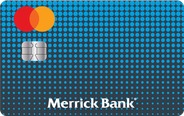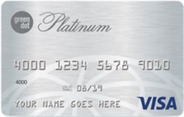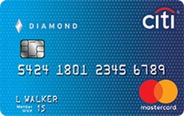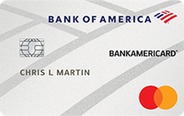Best Secured Credit Cards
Secured credit cards are a popular choice if you need to build your credit. Use our guide to research and choose the best secured credit card for you. Look for low or no annual fees and a reasonable security deposit requirement when comparing secured credit cards. Some secured cards let you earn cash back rewards on purchases, but pay attention to other costs and fees before you apply.
- Our recommendations are based on what reviewers say.
- 4,337,775 reviews on ConsumerAffairs are verified.
- We require contact information to ensure our reviewers are real.
- We use intelligent software that helps us maintain the integrity of reviews.
- Our moderators read all reviews to verify quality and helpfulness.
Compare Top Secured Credit Card Reviews | ||||||
|---|---|---|---|---|---|---|
Features like free monthly FICO scores, automatic credit line review and financial education make this a great secured credit card to rebuild credit. Minimum deposit is $200. First annual fee is $36, then $3 per month after. |  | Chat with a ConsumerAffairs decision guide Live agent | ||||
Easy application process and no bank account requirements make this a great secured credit card for no credit. Cash deposits can be made at popular retail stores. Minimum deposit is $200 and annual fee is $39. |  | Chat with a ConsumerAffairs decision guide Live agent | ||||
Features like free monthly FICO credit scores and 2% cash back makes this a great secured credit card to build credit and earn rewards. Minimum deposit is $200 and there is no annual fee. |  | Chat with a ConsumerAffairs decision guide Live agent | ||||
Cardholders can access a higher credit line after just 5 months of timely payments, which makes this a great secured credit card to rebuild credit. Minimum deposits are $49–$200 and there is no annual fee. |  | Chat with a ConsumerAffairs decision guide Live agent | ||||
Cardholders with limited or no credit can start building credit with responsible use. Applicants must have no bankruptcy history for the last 2 years. Minimum deposit is $200 and there is no annual fee. |  | Chat with a ConsumerAffairs decision guide Live agent | ||||
Features like free monthly FICO scores and overdraft protection make this a great secured credit card for bad credit. Minimum deposit is $300 and there is no annual fee. |  | Chat with a ConsumerAffairs decision guide Live agent | ||||
Good for those with bad credit because cardholders’ activities are reported to all three major credit bureaus monthly. However, this card has more fees than other secured cards. Minimum deposit is $200 and annual fee is $48. |  | Chat with a ConsumerAffairs decision guide Live agent | ||||
Great for building or rebuilding credit, this card is available to U.S. citizens and permanent or temporary residents. Cardholders can build credit and upgrade with same issuer. Minimum deposit is $300 and annual fee is $25. |  | Chat with a ConsumerAffairs decision guide Live agent | ||||
How to get a secured credit card
Almost anyone can get a secured credit card if they can pay for the minimum required security deposit. Even those with bad or nonexistent credit can qualify for a secured credit card since the deposit functions as the collateral.
- Check your credit: If you check your credit and your score is below 600, a secured credit card could be a good option to start building credit over time because lenders see applicants with bad or nonexistent credit as riskier. However, if your credit score is above 600, you should explore the better credit card options available to you.
- Compare secured credit cards: Before you apply for a secured credit card, make sure you understand its terms and conditions. Some secured credit card issuers charge unexpected fees that can add up quickly. It’s also crucial that your issuer reports your activity to all three major credit bureaus if you want to build credit.
- Be honest on the application: Secured credit card applications can be completed online or in a bank or credit union. Most likely, you will provide your name, address and Social Security number, plus information about your income and employment history.
- Wait for approval: It can take anywhere from a few minutes to several days to know if your secured credit card application is approved. If your application is denied, you might consider applying for a different secured credit card through your bank if you already have a checking account or at a local credit union. Remember, it’s not a good idea to apply for every card you can because each new application will make your credit score go down a little bit.
- Fund the deposit: All secured credit card approvals are contingent upon the initial deposit. Depending on the issuer, you could complete a transfer from an existing bank account or deposit cash directly through popular retailers like Walmart or CVS. Once you make the deposit, you should receive your secured credit card in the mail within three weeks.
After you’ve taken steps to get approved for a secured line of credit, make a habit of checking your credit score often to track how it’s improving. If you pay off your secured credit card account, your deposit will be refunded and you can start comparing unsecured credit cards with better rates, rewards and other benefits.
Secured credit card questions
What is a secured credit card?
A secured credit card is a type of credit card with a credit limit that is equal to the cardholder’s refundable deposit. For example, if you deposit $200 on a secured credit card account, then your credit limit is $200. Secured credit card issuers require deposits as collateral because applicants haven’t already established their creditworthiness. Your deposit can be refunded if you close your secured credit card account without a balance, but the secured credit card issuer keeps the deposit if you default on the account.
With responsible use, a secured credit card can help those with bad credit or no credit get on the path to financial freedom. Almost anyone can get approved, and benefits of a secured credit card sometimes include free credit score tracking, cash back rewards on new purchases or more. However, the interest rate on secured credit cards is higher than on unsecured cards, and some issuers charge pricey fees in addition to the security deposit.
Interest rates can be
20% OR MORE
on secured credit cards
How does a secured credit card work?
The amount of your deposit is equal to your credit limit, but you aren’t drawing from the deposit when you use a secured credit card to make a purchase. Instead, the card issuer provides a line of credit and deposit funds act as collateral. Most of the time, the security deposit is refundable as long as you don’t default on the account. Minimum deposits for secured credit cards start around $200, but you can put thousands of dollars on some secured credit cards at a time.
It’s smart to use the card only a few times each month and promptly pay off the balance since secured credit cards have higher interest rates. Once you’ve established responsible patterns of credit utilization and timely payments, your credit score should increase enough for you to be eligible for an unsecured credit card.
On the other hand, if you are more than a month late on a payment, the issuer will report that to the credit bureaus, which will lower your credit score. After more than one past-due payment, you will likely have to pay a fee, your credit score will go down and your interest rate could go up. If you don’t make the minimum balance payments for several months, your issuer will close your account and keep your deposit. You could wind up in collections if the deposit doesn’t cover your balance plus late fees and interest, which will further damage your credit profile.
Does a secured credit card build credit?
A secured credit card can be a valuable financial tool to build (or rebuild) your credit score. Unlike prepaid debit cards, which draw from funds loaded onto the card and don’t improve your credit in any way, secured credit cards utilize a line of credit from a card issuer. When you make regular payments on a secured credit card, it signals to the credit reporting agencies that you are more likely to repay creditors in the future, even if you’ve missed payments for bills or loans in the past.
Be sure to confirm that a secured credit card issuer reports your credit activity to all three major credit bureaus (Experian, TransUnion and Equifax). Otherwise, all your responsible budgeting and timely payments won’t benefit your credit score.
Can you get turned down for a secured credit card?
Secured credit cards are relatively easy to qualify for, but approvals are not guaranteed. You must be 18 years old and be able to verify your identity, plus have enough available funds to put down the initial minimum deposit. Applicants can also be denied for a secured credit card if they have a pending bankruptcy filing or outstanding tax obligations.
Other eligibility requirements vary by issuer. For example, some issuers will approve applicants for a secured credit card without any credit check at all, but these typically come with higher fees. Some issuers require that you have U.S. citizenship, while others offer secured credit cards to permanent or temporary residents; some issuers require you already have a bank account, others allow cash deposits.
If one secured credit card issuer denies your application, considering applying for one through a local credit union or bank if you already have a checking account. Keep in mind that your credit score will take a small hit every time you apply for a new card, secured or not.
Are secured credit cards worth it?
A secured credit card is only worth it if they are used correctly. To use a secured credit card most effectively, only make purchases a few times each month and promptly pay the balance. Pay attention to how your credit score is improving over time — many card issuers provide free credit score updates — and ask about upgrading to an unsecured card with the same issuer.
Responsible credit utilization is an excellent way to improve your credit score quickly, but credit card options are limited if you’re just starting out or recovering from a financial misstep. After you’ve paid the initial deposit as collateral, a secured card functions almost just like an unsecured card. In the worst case scenario, you could get behind on your payments and end up with an even lower credit score than before.
Thanks for subscribing.
You have successfully subscribed to our newsletter! Enjoy reading our tips and recommendations.
Want your company to be on this guide?
Yes, continueYou’re signed up
We’ll start sending you the news you need delivered straight to you. We value your privacy. Unsubscribe easily.